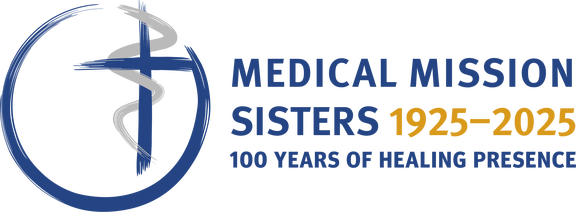Go Green For A Better Future
For weeks, children and young people living with HIV and a group of their peers had looked forwarded to their second “camp”, as the youth gatherings are known in and around Ang’iya, Kenya. Funded by the Conrad N. Hilton Fund for Sisters and organised by Medical Mission Sister, Rosemary Adhiambo, and her colleagues at the Good Shepherd Dispensary, this second gathering had a focus on climate justice and took place between December 27-30th 2023.
Altogether 134 children and young people, aged between 7 to 24 years, came along to learn about Sustainable Development Goal 13 on Climate Action and how to “go green” in and around Ang’iya. Damage to the environment and human health occurs daily in a region, where a rural population depends mainly on firewood for cooking. During their days together, our camp participants discussed how this cooking method is causing forest degradation and loss, air pollution and has health implications - yet use of cleaner forms of energy for cooking is rarely explored in Homa Bay County in Kenya. They agreed that it is now up to them, the younger generation, to lead the way in addressing local environmental issues, bringing new urgency and enthusiasm. For this reason, they were keen to learn not only how to use clean cooking stoves to manage household energy, but also to make ecologically friendly briquettes from left over vegetable and other waste products - such as potato peelings, banana skins etc. One of the camp highlights came when the children and young people went out into the neighbouring villages and, with great pride, demonstrated their new clean cooking skills to local households.
Thanks to our youth gatherings, meaningful messages about environmental stewardship are beginning to ring out loud and clear in local villages. One teenage girl was very excited to recount how, as a result of the previous camp’s activities, a new environmental club has been set up at her school. The young people, who attend it, are very keen to plant more trees in the local area. Having been given fruit saplings at the first camp, other camp participants reported how these have been planted at home, where they are watering and keeping watch over the trees as they grow.
Finally, we were delighted that two teenagers living with HIV, aged 15 and 17 years old, were invited to speak for one hour about the importance of climate action on a local radio show, hosted by the Diocese of Homa Bay. It has very wide outreach across many households at 8.30 am in the morning. For one hour, in a very interactive and lively interview, the young people answered questions about the camps and why they think that it is important to ‘go green’ in today’s world; they highlighted their own particular environmental concerns and were encouraged to propose renewable energy solutions. Never before have young people’s voices been heard in the local climate change debate, discussing its impacts and sharing, with confidence, key facts and SDG commitments. This approach went down very well in a region of environmental degradation, where driving ecological change means unleashing the power of people and nature to create thriving communities and ecosystems.
Our young advocates were delighted, on behalf of their peers, to be given this unique opportunity to speak up for the environment on the radio, only two weeks after world leaders had discussed global concerns about the environment at COP28. In his closing speech, UN Secretary-General, Antonio Guterres, described how this event was happening at a decisive moment in the fight against the climate crisis, a moment that demands maximum ambition, both in the reduction of greenhouse gas emissions and climate justice. In a world where, in his words, we cannot afford delays, indecision or half measures, it feels good to be able to count 134 children and young people in Ang’iya among those who are championing the challenge of the climate crisis on our planet - bringing practical climate solutions designed, in meaningful ways, to match the scale and urgency of the climate crisis.




